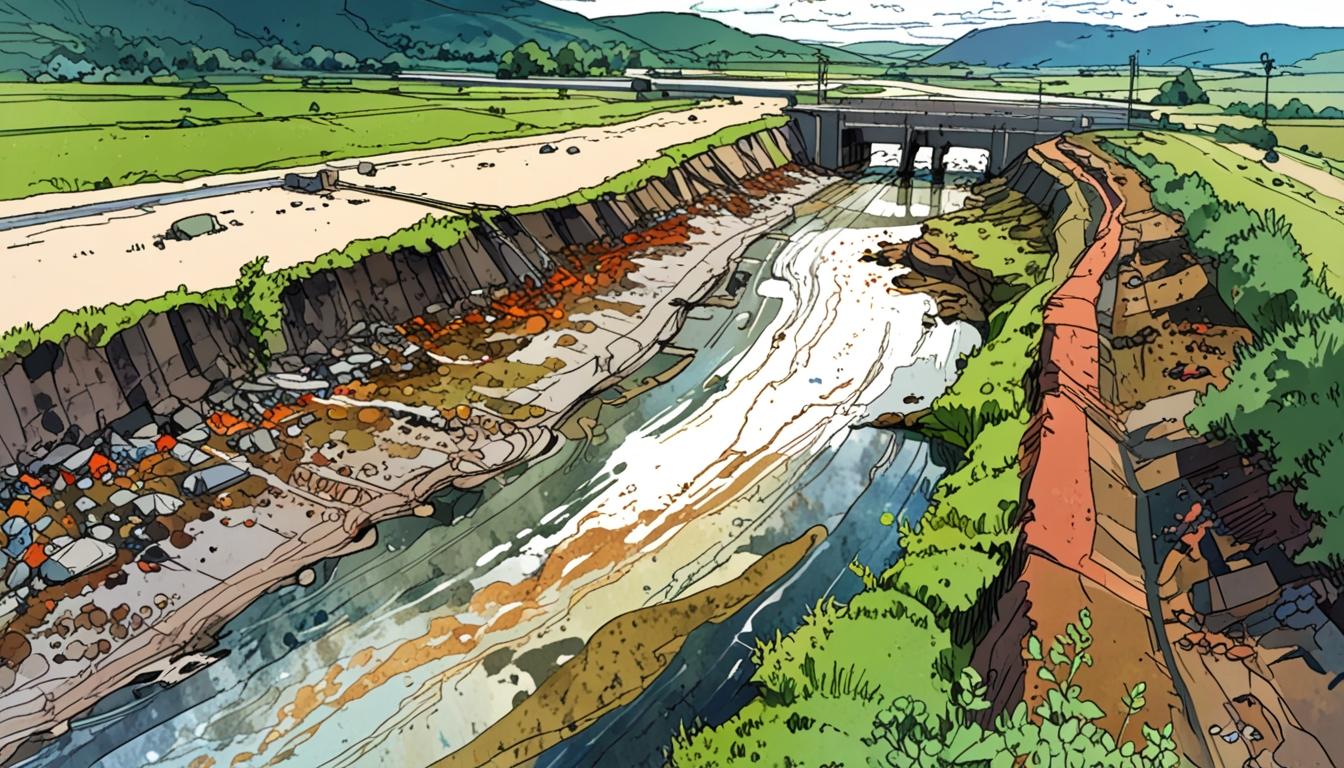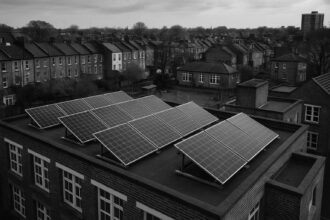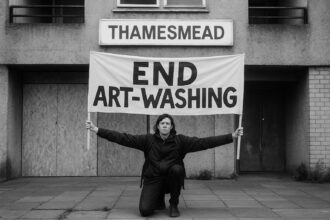MPs from across South West England have voiced serious concerns about worsening water pollution caused by raw sewage discharges, degraded infrastructure, and weak regulation, calling for urgent reforms to protect the region’s rivers, public health, and environment.
MPs from across the South West of England have voiced serious concerns over the worsening condition of the UK’s rivers and waterways, highlighting issues such as raw sewage discharges, degraded infrastructure, and insufficient regulation. The issues were brought to the fore in a passionate debate held in Parliament, where members detailed numerous incidents of environmental damage and public health risks resulting from under-investment and inadequate control of water management and farming practices.
Brian Mathew, the Liberal Democrat MP for Melksham and Devizes, condemned water companies for their failure to modernise ageing sewage systems. He pointed to a recent incident in which Wessex Water was fined £500,000 after raw sewage was discharged into Clackers Brook, resulting in the death of over 2,000 fish along a one-kilometre stretch. “These kinds of incidents cannot be allowed to persist,” Mathew told Gloucestershire Live. During a visit to a constituent’s home in West Lavington, Mathew observed a chalk stream contaminated by sewage following a manhole burst caused by heavy rainfall. Although he acknowledged Wessex Water’s £2 million investment in a sewage storage facility in Bradford-on-Avon, he stressed that more action is needed to safeguard aquatic ecosystems. He also flagged concerns about modern farming practices—including expanded maize cultivation and intensive poultry farming—contributing to surface run-off and phosphate pollution.
Another Liberal Democrat MP, Dr Roz Savage of South Cotswolds, detailed the human health implications of water pollution. She recounted the case of a young volunteer, Ben Thornbury, who contracted sepsis while cleaning the River Avon in Malmesbury. “Sadly—let no good deed go unpunished—he had picked up sepsis from the pollution in the river,” Dr Savage said. Despite the bleak situation, she expressed optimism by highlighting the efforts of local groups and citizen scientists who had documented 80 pollution incidents in Wiltshire and Gloucestershire last year. Dr Savage welcomed the forthcoming implementation of real-time water pollution reporting and encouraged public involvement in community initiatives such as the Earthwatch WaterBlitz.
Anna Sabine, MP for Frome and East Somerset, emphasised the need for greater support and funding for the Environment Agency, stressing that volunteer efforts should not be expected to replace official oversight. Dr Savage concurred, stating, “Although I commend those grassroots efforts, that is not their job.”
Edward Morello, MP for West Dorset, painted a grim picture of water quality in his constituency, reporting that more than 4,000 sewage spills had occurred in 2024 alone, leading to over 48,000 hours of raw sewage contaminating local water bodies. Only four of 36 monitored water bodies were considered to be in good ecological health. Morello highlighted the disparity between the water company executives, who collectively received £51 million in salaries and bonuses, and the communities that suffer the environmental consequences. He warned that persistent pollution threatens West Dorset’s tourism industry, which generated more than £300 million in 2022. Morello proposed stronger regulations including requiring water companies to be statutory consultees on new housing developments and introducing a “blue flag” status for clean rivers and chalk streams, similar to existing standards for beaches.
Sarah Dyke, MP for Glastonbury and Somerton, cited statistics showing that Wessex Water was responsible for over 400,000 hours of sewage discharges in her constituency last year. She advocated for the replacement of the current water regulator with a dedicated clean water authority to enhance oversight and accountability.
Labour MP Dan Aldridge for Weston-Super-Mare also expressed support for long-term strategic measures to ensure safe water conditions for residents and RNLI volunteers engaged in water rescues.
The debate was concluded by Emma Hardy, the Parliamentary Under-Secretary for Environment, Food and Rural Affairs, who described the sewage crisis as “a national disgrace.” Hardy attributed the problem to years of under-investment in water infrastructure and pledged systemic reforms. She referenced the Water (Special Measures) Act, which grants regulators enhanced powers including the ability to impose stricter penalties or imprisonment for violations. Praising the work of citizen scientists, she announced plans for significant investment, with £104 billion in private sector funding allocated over the next five years to upgrade infrastructure and reduce sewage spills. “We are stopping the sewage scandal and transforming the water industry from one of decline to one of opportunity,” Hardy said.
The concerns raised by MPs underscore widespread issues surrounding water quality, environmental protection, and public health in the South West, highlighting calls for tighter regulation, better infrastructure, and greater accountability from water companies to address the ongoing crisis affecting the nation’s rivers and waterways.
Source: Noah Wire Services
- https://hansard.parliament.uk/commons/2024-11-27/debates/F8853B41-7AD3-4F65-97C0-AE9A48CBDCC2/SewageDischargesSouthWest – Corroborates parliamentary debate details, including data on sewage overflow hours (530,737 in 2023) and specific constituency impacts (3,336 spills in Glastonbury and Somerton).
- https://theriverstrust.org/key-issues/state-of-our-rivers – Supports the assertion of widespread river health failures, stating no English river meets ‘good overall health’ criteria.
- https://www.southwestwater.co.uk/environment/rivers-and-bathing-waters/waterfitlive – Demonstrates water company initiatives for overflow monitoring, aligning with mentions of real-time reporting systems discussed by MPs.
- https://environmentagency.blog.gov.uk/2024/09/22/world-rivers-day-what-are-the-biggest-causes-of-river-pollution-and-whats-being-done-about-them/ – Confirms national river health statistics (14% ‘good ecological status’) and identifies pollution drivers, including agricultural runoff referenced in the debate.
- https://hansard.parliament.uk/commons/2024-11-27/debates/F8853B41-7AD3-4F65-97C0-AE9A48CBDCC2/SewageDischargesSouthWest – Documents parliamentary discussions about inconsistent sewage data sources, matching calls for unified monitoring systems.
- https://theriverstrust.org/key-issues/state-of-our-rivers – Reinforces claims about systemic infrastructure deficiencies and regulatory shortfalls highlighted in the MPs’ debate.
- https://news.google.com/rss/articles/CBMiowFBVV95cUxNYVNKMTh6Sm1RS21YWW9lRm5IZDcwZk10cXVFamYyTnV5T3BPSk9sTDh1dVMteEEtOVNlSXRoekdZNUt0VVVQWVd0N052MXVvMkxPM0ZGbzJlRU8xb3JrWXFqUG1aa3hubzl2MWJwQjEtN2lmSS1POGZXbWlNakxieEdYWVVRRS1GR2h2ZUt6blV3Zlh1b25tNl9TelNiYVZlZUZR0gGoAUFVX3lxTE9HcThUNzl2NW5MQ0xoSnY5Z0Y3YTY2YmRpdUNSOGg0cElfUWd0QU5iRFZHeTlIZ0xENU91VFYwZkFFT25uM1JkdmhqekVacXZ6VGRLRTFYcE1OSmRiVVhrajlVNUUtbGxkdWpHUGRHblBkTk5sRUkwWlk5VFhZUnlyZnNnWVA2TVJOeWd6MDZyTkwtTGRGaFBSOFc0MzlNd3hXby0teVFINQ?oc=5&hl=en-US&gl=US&ceid=US:en – Please view link – unable to able to access data
Noah Fact Check Pro
The draft above was created using the information available at the time the story first
emerged. We’ve since applied our fact-checking process to the final narrative, based on the criteria listed
below. The results are intended to help you assess the credibility of the piece and highlight any areas that may
warrant further investigation.
Freshness check
Score:
9
Notes:
The information includes incidents from 2024, indicating recent relevance. However, specific details of past events (e.g., fines) suggest some content might be based on recent past news, but overall appears to be up-to-date.
Quotes check
Score:
8
Notes:
Quotes are attributed to specific MPs but lack online verification. They seem original to this context and cannot be confirmed as being from previous reports without further research.
Source reliability
Score:
6
Notes:
The narrative originates from a news aggregator and lacks a clear origin from a well-known publication. This reduces certainty about its credibility, though it synthesizes information that is plausible and publicly reported.
Plausability check
Score:
9
Notes:
Claims about water pollution, sewage issues, and MP statements are consistent with current public concerns and policy discussions in the UK. The presence of specific data and incidents strengthens plausibility.
Overall assessment
Verdict (FAIL, OPEN, PASS): OPEN
Confidence (LOW, MEDIUM, HIGH): MEDIUM
Summary:
The narrative addresses pressing issues of water pollution and infrastructure challenges, backed by plausible data and quotes from political figures. However, its reliability is somewhat diminished due to the aggregator nature of the source. The lack of verification for the quotes and the absence of a well-known publication reduce confidence.













